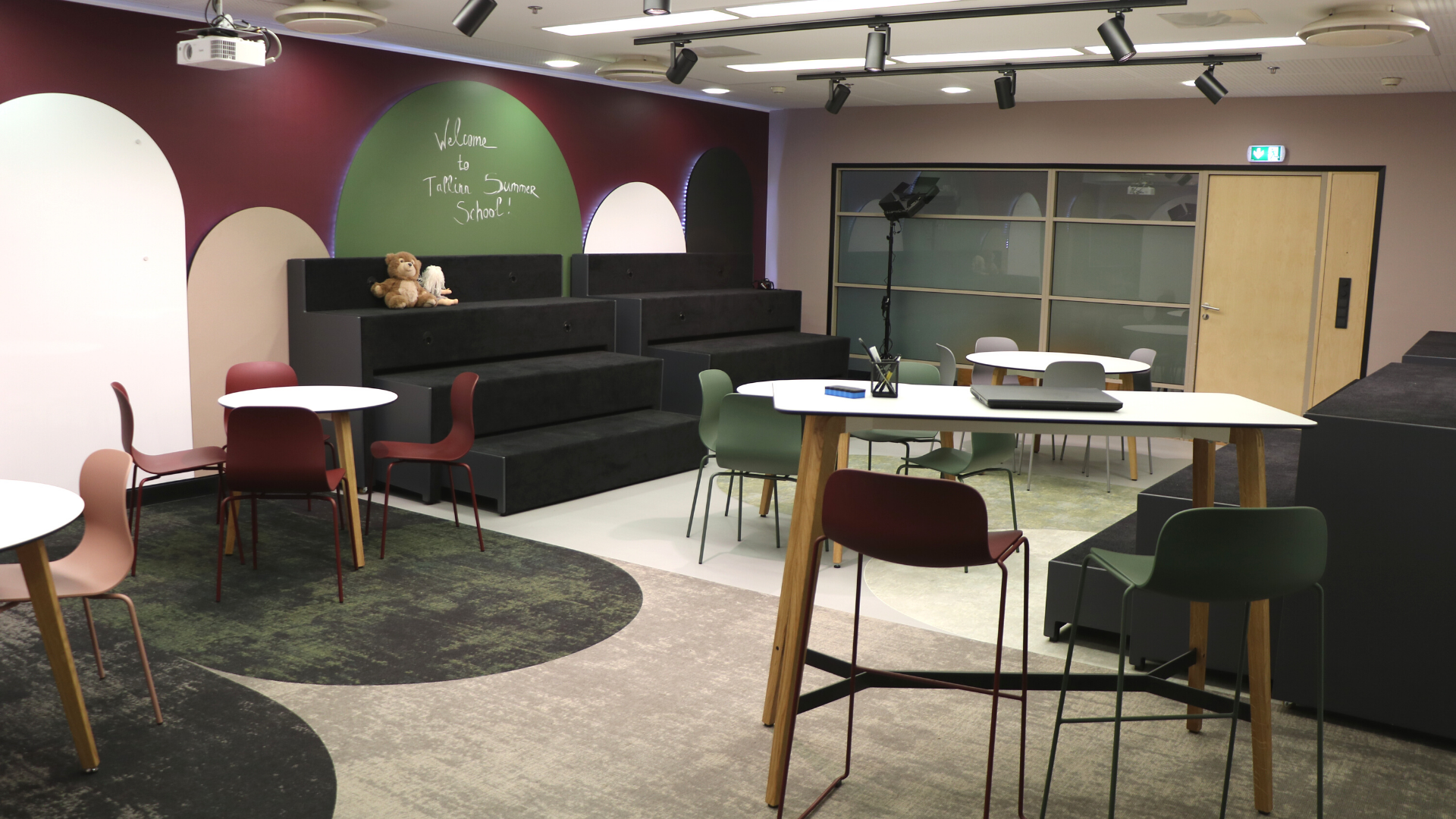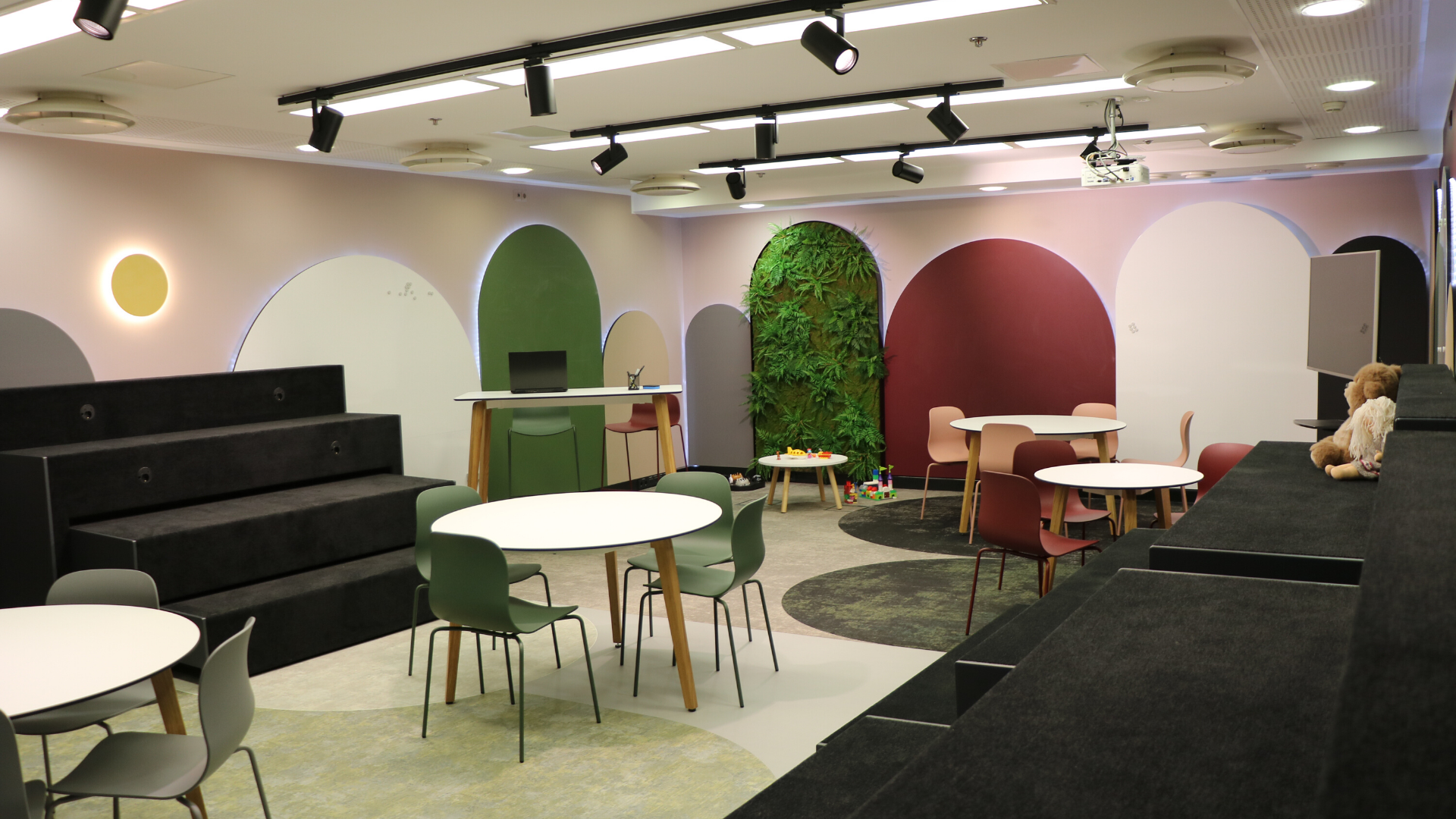The Research Lab – EDUSPACE
Technology-enhanced learning (TEL) methods are often recommended as beneficial for making teaching more efficient and improving students’ future employment options. However, there are some major issues with TEL approach. Namely, the evidence-based knowledge about TEL methods’ influence on the learning process, its outcome, and the sustainability of using these in real classroom settings is insufficient. Also, at the same time, the teachers tend to avoid TEL methods when achieving their teaching goals, causing thus TEL methods that are proposed by technology experts and researchers to become unsustainable in the long term.
t Tallinn University’s Institute of Educational Sciences, there is an international research group of scientists called CEITER that has been funded by Horizon 2020. For addressing above mentioned challenges this group of scientists has developed both the infrastructure model EDUSPACE and the process models EDULAB and INNOLAB.

EDUSPACE – Where educational innovators and science meet
The infrastructure consists of physical research and training lab EDUSPACE. In this lab, the university scientists and teachers, together with different stakeholders from educational institutions, EdTech start-up sector, and EdTech manufacturing industry, are researching and implementing TEL innovations. For facilitating this process, long-term professional teacher development programs INNOLABS are used where new knowledge about successful methods for future-proof classroom practices is co-created.
The secret behind these success stories is a school-university-industry partnership model EDULAB that provides a sound framework for incubating TEL innovations during 1–4 years until the innovation is mature and vital.
The research group built around EDUSPACE is optimized for being a strategical partner for international EdTech industry companies who want to research the influence of their STEAM products on student learning outcomes and to provide teachers with appropriate short and long term professional teacher development programs and trainings to embed these devices into everyday practices while using pedagogically most effective methods. Also, we support with know-how for building EDUSPACE type of initiatives around universities or companies.
EDUSPACE at Tallinn University
The School of Educational Sciences at Tallinn University has recently created a concept of EDUSPACE ecology, where scientist's knowledge could meet the "field" experience of other stakeholders. For example:
- Scientists and teachers co-creating and co-researching new teaching and learning methods on technology-enhanced learning and teaching.
- Field testing and providing evidence when implementing new educational technology provided by manufacturers.
- Mentoring and supporting life-long learning and innovation implementation strategies when adult learning comes into play.
- Supporting coaching for other universities to build up their EDUSPACEs.
EDUSPACE as a physical space
- Equipment: robots, sensors, STEAM sets, VR+AR, recording devices, cameras, tablets etc.
- Staff: Laboratory assistants, lecturers, educators, stakeholders’ coordinators etc.
- Content: courses, presentations, research projects, creation of learning resources, licensing.

Some examples of courses in 2020
- Robot-supported learning in kindergarten and primary school (for Erasmus+ international students, MA level, 3 credits).
- Teachers Innovation Laboratories – long-term professional teacher development programs (for in-service teachers, 6 credits)
- Digimath for gymnasium.
- Outdoor learning for higher grades of primary.
- STEAM in kindergarten.
- STEAM K12 for non-ICT students, 6 credits (blended learning both in English and in Estonian).
